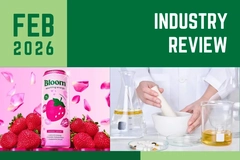
The Government is committed to ensuring that the new regulations deliver the best possible level of protection for babies. After a year of the new rules being in place, an independent review will be carried out to check that they are working effectively.

22/11/07 The UK Department of Health and the Food Standards Agency have set out stricter controls on the promotion, labelling and composition of infant and follow-on formula.
New European Union (EU) legislation, being implemented into law, will ensure that all types of formulae meet the nutritional needs of babies – while ensuring that breastfeeding is not undermined by the marketing and promotion of such products.
The Government is committed to encouraging breastfeeding because of the health benefits to mothers and babies. However, not all mothers choose to, or are able to, breastfeed and these new regulations will enable them to make more informed decisions about feeding choices for their babies. The Government wants mothers to get information about infant feeding from health visitors and midwives as this is the best way to decide what is best for mother and child.
The new measures consist of:
• Updated rules implementing advice from the European Scientific Committee for Food on the composition of all types of formulae. Over the past 12 years, more scientific work has taken place, which has been considered by the European Scientific Committee for Food on the composition of all types of formulae. This is now reflected in the updated regulations.
• Tighter rules on the labelling of all types of formulae. We are updating labelling rules to clarify that follow-on formula should only be used by infants from six months of age (the current directive in force today specifies that follow-on formula can be used from four months. Also, only a small number of approved health and nutrition claims will be allowed on formula milk.
• Tougher restrictions relating to the marketing and promotion of infant formula. The existing legislation allows a very restricted amount of infant formula advertising to parents. The new rules will prevent infant formula being advertised directly to parents.
• Tough new rules on how follow-on formula can be advertised. Follow-on formula can be advertised but needs to follow strict rules, which include making very clear that the product is for older babies. This is to ensure that follow-on formula can in no way be confused with infant formula in the minds of the consumers.
• Robust guidance for industry and enforcement authorities to use to correctly apply the new law. In order to achieve compliance, companies will need to ensure that formula advertising does not do certain things. These include: featuring text or images that relate to pregnancy (for example pregnancy test kits), featuring the feeding or care of infants under six months; using pictures or text that directly or indirectly relate or compare products to breast milk; featuring babies that consumers may perceive as being under six months (even if they are over six months).
The Government is committed to ensuring that the new regulations deliver the best possible level of protection for babies. After a year of the new rules being in place, an independent review will be carried out to check that they are working effectively. Further action will then be taken if needed.
Public Health Minister Dawn Primarolo says: 'These new regulations will ensure that all types of formula milk are clearly labelled and advertised and that they meet the very latest nutritional standards for babies.
'We are committed to promoting and supporting breastfeeding. More women are choosing to breastfeed and we will continue developing our plans to encourage this trend.
'Some women cannot or choose not to breastfeed and it is important that they have the information they need to make the right choice for their baby’s health.
'Health visitors and midwives offer the advice, support and information for all parents to make informed choices about how they wish to feed their baby.
'I shall be reviewing things in a year's time to ensure that the regulations are being truly effective.'
Rosemary Hignett, Head of Nutrition at the Food Standards Agency, adds: 'Although breastfeeding is best, we recognise that many mothers choose to use formula milk and it’s important that measures are in place to protect them and their babies.
'The guidance provides clear direction to industry on the action they must take in order to comply with the new regulations. The new controls will provide the protection that mothers and babies need and deserve.'
The Food Standards Agency held a public consultation on the draft regulations earlier this year and has today published the responses received on its website. A 12-week public consultation on the draft statutory guidance notes has also begun and the Agency is seeking views from all stakeholders.
This consultation closes on 13 February 2008 and the final guidance notes will be published as soon as possible after this.















